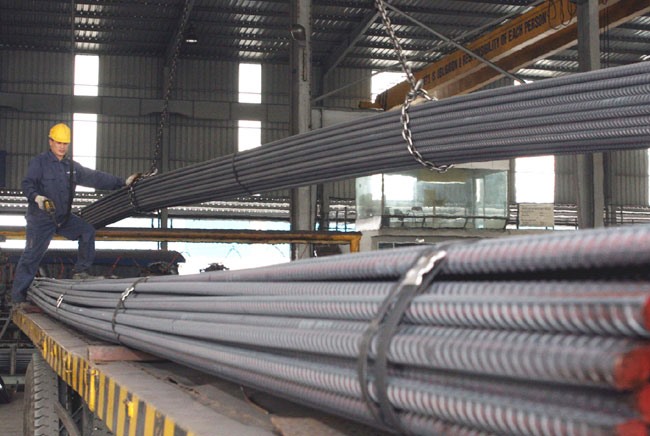 Economy
Economy

The General Department of Customs has just asked its officials to strengthen checks on imported steel products after a series of reports on steel firms submitting incorrect declarations about product codes.
 |
| Steel is produced at Việt Nam-Germany Steel Pipe Joint Stock Company in northern Vĩnh Phúc’s Bình Xuyên Industrial Zone. — VNA/VNS Photo Trần Việt |
HÀ NỘI — The General Department of Customs has just asked its officials to strengthen checks on imported steel products after a series of reports on steel firms submitting incorrect declarations about product codes.
All customs departments of provinces and cities have been ordered to direct their sub-departments to strictly implement regulations on sampling, analysing and inspecting imported steel products, and identify imported products with incorrect codes.
As per the Ministry of Industry and Trade’s (MoIT) Decision No 2968/QD-BCT dated July 18, 2016 on safeguards, the tax rate for imported steel billets is 23.3 per cent and for imported long steel products is 15.4 per cent (as of March 21, 2017).
From March 22, 2017 to March 21, 2018, the tax rate for imported steel billets and long steel products is 21.3 per cent and 13.9 per cent, respectively.
The MoIT has imposed additional tariffs on imported steel products as a safeguard against cheap imports that are believed to be threatening the domestic industry.
Also under the decision, imported products on which safeguards have been applied include alloy and non-alloy steel billets, and alloy and non-alloy long steel products coded: 7207.11.00; 7207.19.00; 7207.20.29; 7207.20.99; 7224.90.00; 7213.10.00; 7213.91.20; 7214.20.31; 7214.20.41; 7227.90.00; 7228.30.10; 9811.00.00.
Steel billets and long steel products that do not have these codes will be excluded from the tougher safeguards.
However, after the safeguards were applied, representatives of Việt Nam Steel Association said the import volume of the two types of steel have declined sharply, while the import volume of steel products with non-taxable codes has shot up. Officials suspect that local steel importers are changing product codes to avoid paying higher tax. — VNS